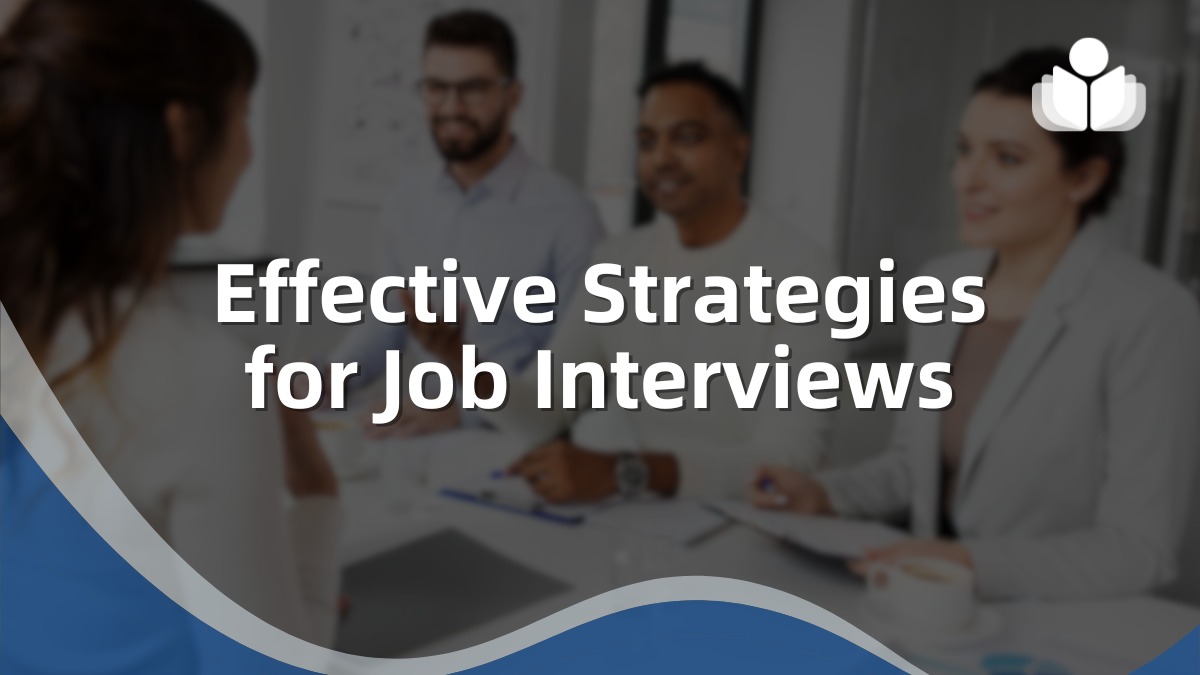Mastering job interview techniques is crucial for securing your desired position. Effective strategies include thorough company research, aligning your skills with the job requirements, and practicing common interview questions.
Presenting yourself professionally, demonstrating strong communication skills, and following up promptly can significantly enhance your interview performance. By implementing these approaches, you increase your chances of making a positive impression and advancing in the staffing process.
Pre-Interview Preparation
Thorough preparation is essential for a successful interview. Consider the following steps:
1. Research the Company
- Understand the company’s mission, values, and culture: Review the organization’s website, particularly the “About Us” section, to gain insight into its goals and core principles.
- Familiarize yourself with recent news and developments: Stay updated on the company’s latest projects, achievements, or challenges through press releases, news articles, and social media platforms.
2. Understand the Job Role
- Analyze the job description to identify required skills and qualifications: Examine the job posting to pinpoint key responsibilities and desired skills.
- Align your experiences with the job requirements: Match your past achievements and experiences to the role’s expectations, highlighting specific examples of when you showed the required skills.
3. Practice Common Interview Questions
- Prepare answers for frequently asked questions: Develop responses to standard questions like “Tell me about yourself,” “What are your strengths and weaknesses?” and “Why do you want to work here?”
- Use the STAR method for behavioral questions: Use the STAR method (Situation, Task, Action, Result) to structure clear and concise answers to questions like “Describe a time you resolved a challenging problem.”
4. Mock Interviews
- Conduct practice interviews to build confidence and receive feedback: Rehearse with a friend, mentor, or career coach to simulate the interview environment and incorporate constructive feedback to improve your responses and delivery.
Presentation and Professionalism
Presenting yourself professionally during an interview is crucial to making a positive impression.
- Dress Appropriately: First impressions matter, and your attire plays a significant role. Choose clothing that aligns with the company’s dress code—whether formal, business casual, or creative. Ensure your outfit is clean, well-fitted, and professional.
- Punctuality: Arriving 10-15 minutes early shows your reliability, gives you time to settle in and mentally prepare, and reflects your respect for the interviewer’s time.
- Body Language: Non-verbal cues can speak volumes. Maintain steady eye contact to show confidence, offer a firm handshake as a sign of professionalism, and sit upright to exude attentiveness and interest. Avoid crossing your arms, which can appear defensive.
- Communication Skills: Your ability to express yourself effectively is critical. Speak clearly and concisely, using a confident tone. Listen actively to the interviewer, nodding when appropriate, and avoid interrupting. Great communication leaves a lasting positive impression.
During the Interview
Navigating the interview process confidently and clearly is essential for making a positive impression.
1. Answering Questions Effectively
Providing specific examples is key to making a strong impression during an interview. Share real-life scenarios showing your skills and achievements, such as how you solved a complex problem, led a successful project, or improved efficiency in your previous role. These examples help employers visualize your contributions and how you can add value to their organization.
Always remain honest and authentic in your responses. Employers value genuine and transparent candidates, as it reflects integrity and builds trust. If you don’t know the answer to a question, it’s better to admit it than to fabricate an answer.
2. Asking Insightful Questions
Asking thoughtful and relevant questions shows your interest in the role and the company. Prepare a few queries about the responsibilities, growth opportunities, or challenges of the position, such as, “What does success in this role look like in the first six months?” or “What are the most significant challenges facing the team right now?” This shows your enthusiasm and helps you gauge whether the position aligns with your career goals.
Inquiring about company culture or upcoming projects can highlight your curiosity and desire to understand the bigger picture, making you a more appealing candidate.
3. Handling Difficult Questions
Challenging questions are often designed to test your composure and problem-solving abilities. When faced with such questions, remain calm and take a moment to gather your thoughts before responding. Employers appreciate candidates who show thoughtfulness and clarity under pressure.
To provide structured and compelling answers, use the STAR method—describe the Situation, the Task you faced, the Action you took, and the Result achieved. For instance, if asked about a past conflict at work, explain how you approached the issue, resolved it, and what positive outcomes resulted.
Post-Interview Actions
After completing an interview, engaging in thoughtful follow-up activities is essential to reinforce your candidacy and prepare for future opportunities.
1. Follow-Up
- Send a thank-you email to the interviewer(s) within 24 hours of the interview
- Express gratitude for their time and the opportunity to discuss the role
- Reiterate your enthusiasm for the position and briefly highlight how your skills align with the company’s needs
- Personalize the email by referencing specific topics discussed during the interview
2. Reflect on Performance
- Take a moment to evaluate your interview experience
- Identify the questions you answered confidently and those that were challenging
- Note any feedback provided during the interview to guide future improvements
- Use this reflection to refine your preparation for upcoming interviews
Additional Tips for Job Interview Success
Besides preparation and professionalism, these extra strategies can set you apart as a standout candidate:
- Adaptability: In today’s dynamic job market, interviews can take various forms, including panel, virtual, and phone formats. Demonstrating adaptability is crucial. Practice engaging with multiple interviewers for panel interviews, ensuring you address each person effectively. Test your technology beforehand in virtual settings, ensure proper lighting, and minimize distractions to create a professional environment. For phone interviews, focus on clear communication and active listening, as non-verbal cues are absent.
- Cultural Fit: Aligning with a company’s culture can significantly impact your success within the organization. Research the company’s mission, values, and work environment through its website, social media, and employee reviews. During the interview, articulate how your personal and professional values resonate with the company’s culture. Share specific examples from your past experiences showing your ability to thrive in similar environments.
- Continuous Learning: Employers value candidates committed to personal and professional growth. Stay updated on industry trends, emerging technologies, and best practices relevant to your field. Engage in courses, certifications, or workshops to enhance your skill set. During the interview, mention recent learning experiences and how they have prepared you for the role. This shows your proactive development approach and readiness to contribute effectively to the organization.
Building Confidence and Reducing Anxiety
Feeling confident and managing anxiety is crucial for a successful job interview. Here are strategies to help you present your best self:
- Visualization Techniques: Imagine yourself excelling in the interview. Visualizing success can boost your confidence and prepare your mind for a positive outcome.
- Breathing Exercises: Practice deep breathing to calm nerves. Inhale slowly through your nose, hold briefly, and exhale through your mouth. This can reduce anxiety and help maintain composure.
- Thorough Preparation: The more prepared you are, the more confident you’ll feel. Research the company, understand the role, and practice your responses to common questions.
- Positive Self-Talk: Replace negative thoughts with affirmations of your skills and achievements. Remind yourself of past successes and the value you bring.
- Mock Interviews: Conduct practice interviews with a friend or mentor. This provides constructive feedback and helps you become comfortable with the interview format.
- Body Language Awareness: Maintain good posture, eye contact, and smile. Positive body language can enhance your confidence and leave a strong impression.
- Mindfulness Practices: Mindfulness or meditation to stay present and reduce pre-interview jitters. This can help center your thoughts and improve focus.
By incorporating these techniques, you can build confidence and effectively manage anxiety, leading to a more successful interview experience.
Frequently Asked Questions (FAQs)
How Should I Prepare for Behavioral Interview Questions?
Use the STAR method to tackle behavioral questions effectively—Situation, Task, Action, Result. This approach helps structure your responses by outlining the context, your responsibilities, the actions you took, and the outcomes achieved. Practicing this method can enhance clarity and impact during your interview.
What Are Some Common Mistakes to Avoid During an Interview?
Common pitfalls include arriving late, dressing inappropriately, speaking negatively about past employers, and failing to ask insightful questions. Not researching the company or role can signal a lack of interest.
How Can I Make a Strong First Impression?
Arrive on time, dress appropriately, and greet your interviewer with a firm handshake and a smile. Maintaining good posture and making eye contact throughout the interview also contribute to a positive impression.
Is It Appropriate to Ask About Salary During the Initial Interview?
It’s generally advisable to wait until the employer mentions compensation. If the topic doesn’t arise, salary expectations should be discussed during later stages of the interview process or when an offer is extended.
Conclusion
Mastering job interviews requires thorough preparation, professionalism, and a confident approach. You can leave a lasting impression by researching the company, practicing responses, and showcasing your unique value. Remember, thoughtful follow-ups and learning from each experience are essential to continuous improvement. Apply these strategies with determination, and you’ll be well on your way to landing your dream job. Success is within reach—seize it!
 Sections of this topic
Sections of this topic
















